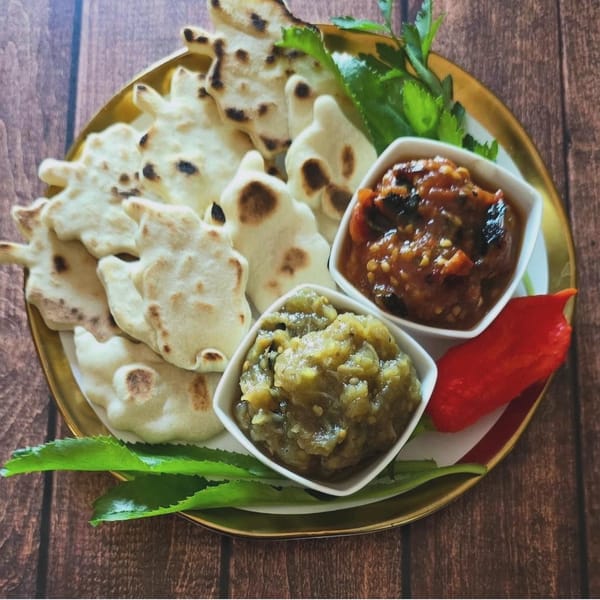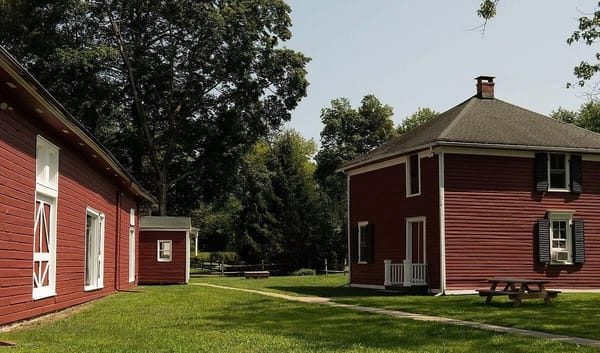
AgriCulture bloggers Peter Davies and Mark Scherzer are the owners of Turkana Farms in Germantown, NY. This week, Peter writes: One of the minor mysteries that nagged at me while living in Turkey years ago was the pots of dwarf bush basil I saw on the sills of the village cottage windows along the Aegean coast. The mystery was that I never saw basil used in any way in Turkish cuisine, nor did I ever hear much mention of it. Turkish cookery is so herb oriented with its heavy use of mint, dill, oregano, and rosemary that the absence of basil seemed strange. To me, it is very odd, given that Italy and Turkey are both Mediterranean countries, sharing so much culturally and climate-wise, that, while basil plays such a prominent role in Italian cuisine, it is virtually absent from Ottoman/Turkish cookery. Even odder, given that Turkish and Greek cultures were so intermingled for centuries, is that basil seems to be so much a part of Greek myth and folk belief while in Turkey it seems relegated, seemingly bereft of all associations, to village window sills.

I was thinking of this last month while potting the dwarf bush basil plants, labeled “Greek Basil,” I had started in the greenhouse in the late spring. This variety of basil is the one with the tiny leaves that mounds so beautifully if its end leaves are constantly pinched (thus both creating a little topiary and providing a convenient kitchen source for brightening up salads and other dishes). I had similarly potted this variety, or one like it, about eight years ago after returning from Turkey with a tiny packet of miniscule black seeds, wild basil, which I eagerly planted with great success. But for some reason I had let the practice lapse (probably because I did not act soon enough collecting the seeds). The seeds were a gift from Erkan, the owner/captain of the yacht I usually charter for my trips. I had been in Bodrum, on the lower Aegean, making charter arrangements and was invited up into the surrounding hills to see the tiny subsistence level farm Erkan had grown up on. I remember sitting outside his family’s farm cottage enjoying the fantastic view. Through a large cleft in the mountains, the turquoise waters of the Aegean sparkled, except where three barren cone-shaped islands, ancient mountain tops, poked through, barely rising out of the sea. As I sat mesmerized, looking at this strangely primitive scene, Erkan asked me if I would like some of the basil seeds his father had foraged recently on the mountainside.

I knew that the Turkish peasantry still foraged a great deal, particularly in the spring. I had recently seen peasants carrying baskets overflowing with some kind of greenery, which, upon inspection, turned out to be wild marguerites. On further inquiry, I learned that the villagers sautéed them as a spring vegetable. This was a dish I had never seen in Turkish restaurants or in urban Turkish homes. I also knew that the Turkish countryside was rich with herbs. In my first months of living in Izmir, Turkey, in the early sixties, I remember having made out a list of vegetables and herbs I wanted our school buyer to get us from the market. He laughed when he saw rosemary, oregano, bay leaves, and thyme on the list and said “Oh, we don’t need to buy those. I can pick them for you in the fields.” And he did. Subsequent hikes through the countryside revealed paths redolent with herbs, especially thyme, rosemary, and oregano but not basil. However, in Bodrum, possibly because it was once primarily Greek-populated and the climate is right, basil seems to have naturalized. Once I had Erkan’s gift seeds in hand, it seemed an opportune time to solve a few mysteries; for one, the purpose of the tiny pots of basil on cottage window ledges and, secondly, its absence from Turkish cuisine “For deodorizing the rooms, and sometimes we use it,” Erkan glibly replied in such a way as to say “End of subject.” And this answer satisfied me for a time but, gradually, it occurred to me that in this part of the world everything was so fraught with meaning and symbol that this could not be the entire explanation.

I had learned from attending several Turkish funerals, for instance, that the bunch of rosemary dropped on the filled grave, the water poured on it, and the smashing of the ceramic water pot signified death and resurrection. And I had learned at the underwater archaeology museum in Bodrum from the centuries-old wrecks preserved there that a sprig of rosemary in ancient times traditionally hung from the mast or the roof of the ship’s cabin. And I became aware thereafter that even today in the yachts and small boats of the region, rosemary predictably can be found hanging somewhere. Obviously it was an ancient custom, rosemary functioning as some kind of protective talisman. Are the pots of basil in the windows in Turkey there for reasons other than deodorizing the rooms? I assume they must be since there are so many rituals and beliefs associated with basil worldwide. In India, where it is generally believed basil originated, the herb is placed in the mouth of the dying to ensure that they reach God. The ancient Egyptians and Greeks believed it would open the gates of heaven. And it is known from an examination of mummies that Egyptians used basil in the embalming process. In European lore there seems to be good basil and bad basil. In some, basil is the symbol of Satan, and some Greek beliefs associate basil with hatred. On the good side, it is believed that basil was found around Christ’s tomb after the resurrection, hence its use in holy water, and its presence beneath altars in most branches of Orthodox Christianity. On a more romantic level, in Portugal a pot of dwarf bush basil is traditionally presented, along with a poem and pompom, to a sweetheart on the religious holidays of Saint John and Saint Anthony. A friends tells me that in Sicily, a pot of dwarf basil on the windowsill is the sign of a house of prostitution—they seem to have one-upped the young swains in Portugal. In eastern Turkey, a brothel is signaled more subtly, with the glow of a lighted cigarette in a dark window. Slowly, in stages, the glow moves towards the window becoming brighter and brighter, ending with a puff of smoke before withdrawing gradually in stages, leaving blackness. Very mysterious; almost hypnotic. Too dark for potted basil, I guess. And definitely too dark to see the lady.

So where, I wonder, is the basil lore of the Turks? One possible clue: Our name for the plant “basil” apparently derives from Greek. There are two theories regarding the derivation of the word; one is that it derives from the word “basileus,” above, meaning “king” or “royal”, another, that it comes from the word “basilisk,” the half-lizard/half-dragon monster of mythology, right, known for its fatal piercing stare and equally fatal breath. In popular Greek lore, the medicinal application of basil leaf was believed to protect one from the stare, breath, and even bite of the basilisk. Is it possible that the pot of basil on the window ledges of cottages along the Aegean hark back to this protective function, guarding the vulnerability of an open window? Possibly, since nowhere else in Anatolia do Greek and Turkish cultures fuse so closely as along the Aegean. But, then, I may never know, as I have yet to meet a Turk who would speak to me about basil. —Peter DaviesFor the complete archive of past AgriCulture blogs, click here. AgriCulture fans who would like to continue receiving Peter Davies' and Mark Scherzer's essays, may sign up for their weekly e-mail at {encode="farm@turkanafarms.com" title="farm@turkanafarms.com"}.








